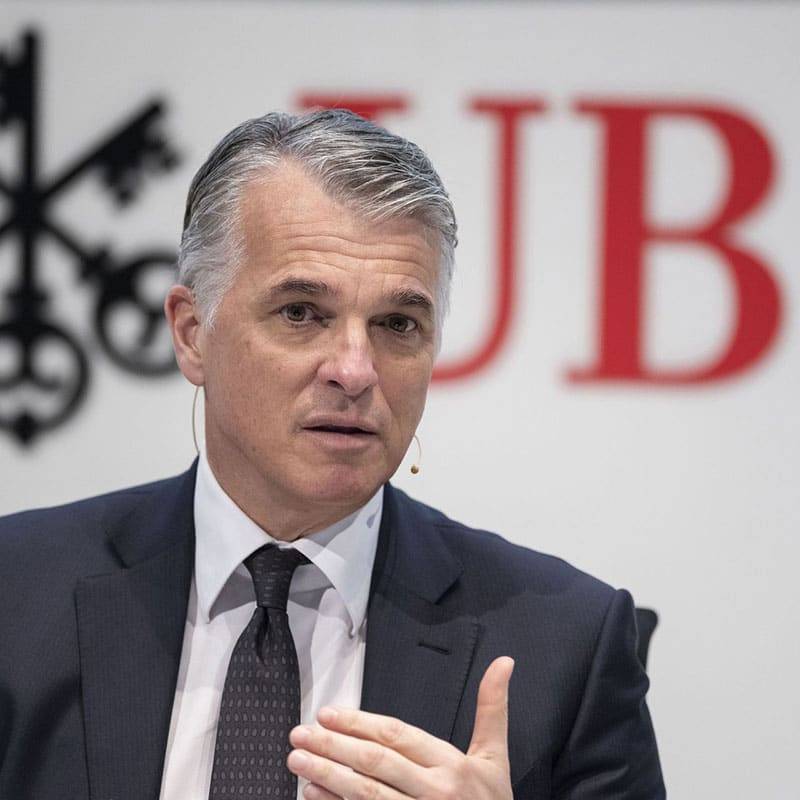Sergio Ermotti made his first investment when he was somewhere between 17 and 18 years of age, buying a bond for its yield. It was during this time that he was serving as an apprentice at the local Corner Bank in Lugano, Switzerland. His father was also employed there. “My father has also seen a big part of my career and was definitely proud of me. He didn’t see me as the CEO of UBS, but he was always proud of me, and that always made me very happy”, said Ermotti in an interview for Swiss Radio and Television (SRF).

First Round at UBS
Later, Sergio Ermotti joined Merrill Lynch, rising through the ranks from 1987 to 2004. He completed his training with the advanced management programme at Oxford University. After working at UniCredit, where he headed the markets and investment banking division, Ermotti was then entrusted with the CEO role at UBS.
In his first decade at UBS, he was a stabilising force. The bank had required a state bailout during the global financial crisis, and a rogue-trading scandal in 2011 further rocked its reputation. The new CEO overhauled the bank’s playbook, swapping the volatility of investment banking for the steadiness of wealth management.
“Scoring a goal in the final of the World Cup in the 90th minute would be better than being the CEO of a bank,” he said, recalling his football dreams. Bankers are not necessarily popular. “I get flowers, yes, but I hope I don’t get tomatoes [in the face],” he said with a smile. When he left UBS in 2020, he gave the 25,000 UBS employees a week’s salary in their bank accounts.
Your Wealth, Our Priority: Altoo's Consolidation Power, Secure Document Management, and Seamless Stakeholder Sharing for High Net Worth Individuals. Preview Platform.
Second Round at UBS
In the emergency takeover of Credit Suisse by UBS, the bank could not afford to experiment and has appointed Sergio Ermotti, who was Chairman of the Board of Directors of reinsurer Swiss Re, as CEO again. UBS needed someone who was able to get the bank back on track. Sergio Ermotti knows the business of an internationally networked universal bank very well and is particularly well connected in Switzerland.
It was “surreal” to be back less than three years after stepping down, he told Bloomberg Businessweek in an exclusive interview in October 2023. But “after 48 hours, it was almost like I’d never left.” He also talked about the challenges of the job. „The hardest is, at the end of the day, to manage both. Then what we are going through is a massive exercise: the merger between two big banks and, at the same time, staying close to clients, feeling their expectations, and helping them navigate these challenging macroeconomic and political times. That is the biggest challenge”, said Ermotti.
For now, Ermotti is laying the groundwork for UBS’s growth strategy far beyond the acquisition of Credit Suisse. “I see my mandate as not only about integrating the bank,” he says. “The true, real legacy is also to prepare the bank for the next chapter.”
To remain agile
Because of his resemblance to a Hollywood actor, he is also called “George Clooney of Paradeplatz,” the place in Zurich where UBS has its headquarters. What does he say to such a nickname? “Better that than the opposite. But I think, well, I mean, people were having fun in a programme where they were talking about UBS,” smiles Ermotti, because he understands fun. In 2014, he was challenged by Marc Walder, CEO of Swiss media company Ringier, and Gianluigi Bianchi, managing partner for Europe at Wealth-X, to undertake the ALS Ice Bucket Challenge.
But still, Sergio Ermotti is a banker in body and soul. These days, he is commenting on the development of inflation with concern. He is not convinced the central banks have inflation under control.
“One thing I’ve learned is that one must not try to make predictions for the coming months; it’s nearly impossible. That said, at this stage, I am still not convinced that inflation is really under control,” Ermotti told Swiss newspaper Le Matin Dimanche when asked about the economic outlook. “The trend seems favourable, but we must see if it continues. If inflation approaches the 2% target in all major economies, the central banks’ policies could loosen a bit. In this environment, it is very important to remain agile,” he added.













